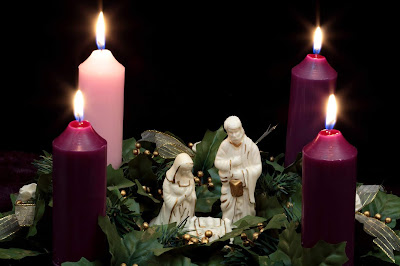English is usually a vocabulary rich language. Take the word
‘walk’ as an example. You can amble, stroll, saunter, trudge, march, sashay,
glide, wander, plod, dawdle, hike, stomp, stagger, ramble, tread, prowl, promenade,
roam, mosey, traipse, and stride. All of these mean to walk but each describes
a different way to walk. It is easy to understand just how someone is walking
by using one of these words.
Yet, when we get to the most important thing in life we have
but one word in English. I love my wife. I love my job. I love my pet squirrel.
I can even denote the opposite meaning by using love sarcastically. I love
cleaning up the dog mess on the front lawn. Love holds a different meaning in
each of these sentences but it is left up to the reader to figure out what is
meant in each of them.
Love is a scary thing because it makes one vulnerable and
opens one up to be hurt. What happens if I love someone and they don’t love me
back? What if I express my love and I am thought of as a fool? It is true that
love can make you vulnerable but it is equally true that love can make you invincible.
It all depends on the way you love.
The lowest level of love is an inward love, a selfish love.
It is a love of desire. The Greeks had a word for this type of love and that is
eros. We get the word erotic from it. We associate it with a desire of a
physical nature but covers desires of all sorts. Someone who is gluttonous has
a (eros) love of food. Someone who is greedy has a (eros) love of money.
Someone who is vain has a (eros) love of beauty.
The next level of love is an outward love for another that
usually depends on an inward love that is returned. This is a brotherly love
that is often expressed in loyalty as in between friends, family, and one’s
community. It is a generic type of love. The Greek word for this type of love
is philia and we get words like Philadelphia or pedophilia from it. I (philia)
love my coworkers. I (philia) love my schnauzer. I (philia) love the Chicago Cubs.
There is an expectation with this type of love that the same love will be
returned. It makes one vulnerable to suffering when the love goes unrequited.
The next level of love is more outward than inward. It is a
love of tenderness and affection, usually between parents and children. It is a
familial love. For the Greeks this love was known as storge. This type of love
was also used to describe extreme loyalty, as in patriotism for one’s country.
Although more outward than inward, this type of love can make one vulnerable to
very deep pain and suffering. It is the kind of suffering a parent goes through
when they watch one of their children suffer or the pain they feel when rejected
by a child. It is the kind of suffering a patriot goes through when he learns
of a great evil his country has committed. It is some of the greatest pain a
person can ever know.
The highest level of love is always outward. It is a
sacrificial love that expects nothing in return. It is a love that loves above
all things. To the Greeks this type of love was known as agápe. For a Christian, God is agápe. Agápe is loving without
regard to one’s self, giving all one has. This makes a person invulnerable. If
you are willing to give everything without regard to yourself nothing can hurt
you. This is the level of love we all are called to. It is a level most of us
will never obtain until the end of purgatory. Then we will be able to see God
for who he is for we will be like him. We will be agape.
Peter denied Jesus three times on the night he was betrayed.
In John 21: 15 - 17 Jesus asks Peter if he loves him shortly after Jesus’ resurrection.
Peter answers that he does. This is often referred to as the redemption of
Peter. Reading this in the original Greek paints a slightly different story.
Twice Jesus asks Peter if he loves him above all things (agápe). Peter responds
that he only has a brotherly love for Jesus (philia). The third time Jesus asks
Peter if he only has a brotherly love for him (philia). With this, scripture
says that Peter was grieved. Most assume that it is because Jesus has now asked
three times, reminding him of his three denials. I suspect that it is because
Peter has realized that he has failed yet another test. He didn’t have the love
for Jesus that he should have by now (agápe). Jesus promises Peter that he will love him with total
sacrificial love before his ministry comes to an end. Peter does his time in
purgatory during his time on earth and goes to his own crucifixion with agápe love for our Lord.
Agápe
love is the love Saint Paul is talking about when he says that love is patient,
love is kind…you know, the reading you always heard read at weddings. We are
called to have that type of love, total sacrificial love, for our spouse. To
put them first and to live for them in everything.
The
type of love we are called to have for our spouse is the same type of love we
are called to have for every person, friend and foe alike. That is the kind of
love God has for each of us.

